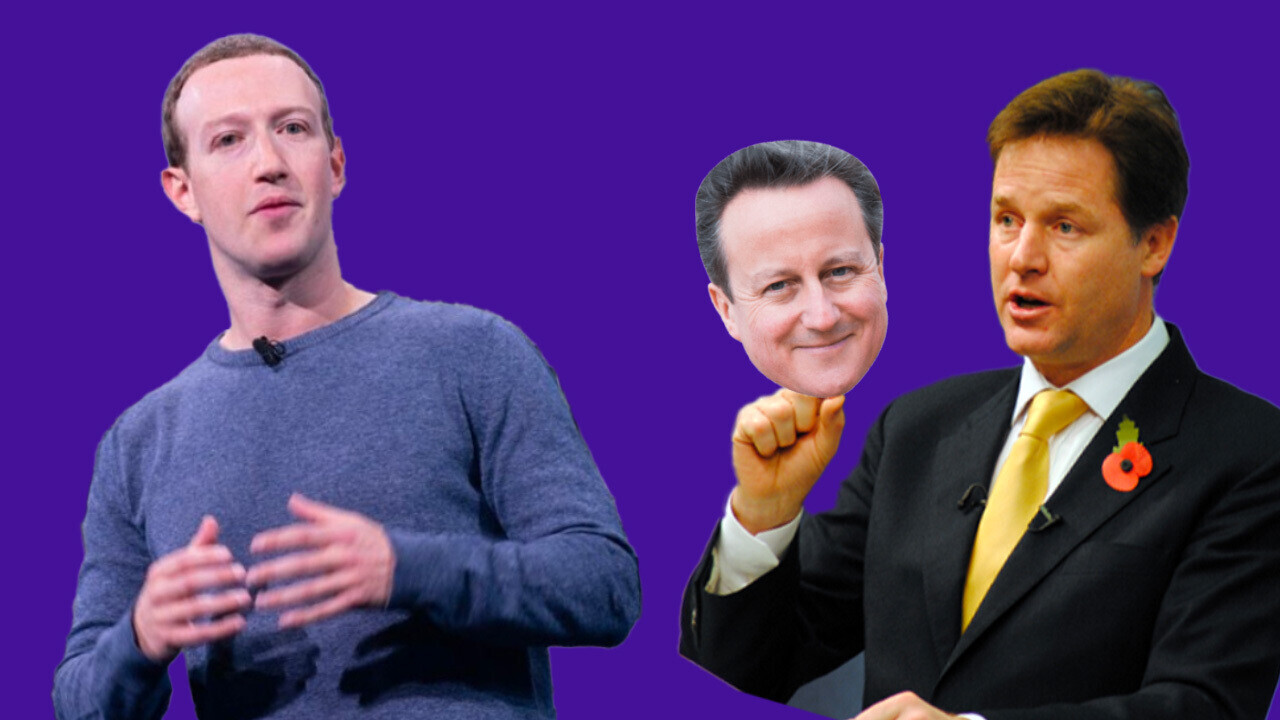
In what many saw as a surprise move, Meta has promoted former UK deputy prime minister Nick Clegg to its president of global affairs. According to Mark Zuckerberg, Meta’s founder and CEO, Clegg is now “a senior leader at the level of myself … who can lead and represent us for all of our policy issues globally”.
What should we make of this? It is too optimistic to think that Meta’s culture of personal data mining and manipulation might finally be coming to an end?
Meta, formerly known as Facebook, has long been criticized for its data privacy and policy practices. As far back as 2007, only three years after its founding, Zuckerberg had to apologize for informing users’ friends of their purchases. In 2011, the company agreed with the US Federal Trade Commission (FTC) that it would undergo independent audits every other year in the face of charges that it was sharing people’s private information with third-party apps.
The trouble with Facebook and data privacy has only continued, however. This ranged from a bug that revealed private information in 2013, to admitting it was secretly doing mood manipulation experiments on users in 2014, to collecting information about private users through third-party sites in 2018.
Most notoriously, this was also the year that Facebook acknowledged it knew about massive data harvesting in the Cambridge Analytica scandal. The FTC went on to fine the company a record-breaking US$5 billion (£3.7 billion) over the scandal. The commission declared that:
If you’ve ever wondered what a paradigm shift looks like, you’re witnessing one today … the settlement requires Facebook to implement changes to its privacy practices, its corporate structure, and the role of CEO Mark Zuckerberg that are seismic in scope. Simply put, when it comes to the business of consumer privacy, it’s no longer business as usual at Facebook.
Since then, the company has come under special public scrutiny as a force for using people’s personal data to spread viral misinformation. Most recently, it was condemned for attracting users by becoming a space for far-right extremism and COVID-19 fear-mongering.
These worries have only been heightened by the announcement of the company’s vision of the “metaverse” in October 2021. On offer is an almost completely virtual future reality hosted and controlled by Meta. There would be seemingly little stopping the company from completely violating and exploiting people’s data for decades to come. So is Clegg going to stop this from happening?
A new era of protection?
Clegg’s hiring in October 2018 as vice president of global affairs – essentially a well-connected lobbyist and spokesman – was meant to publicly allay all the fears surrounding the company. The former Liberal Democrat leader has emphasized his status as an outsider to Silicon Valley who cut his teeth by making difficult compromises as the junior partner in David Cameron’s coalition government of 2010-15.
He argued that there’s an analogy here when it comes to regulating extremist content on social media platforms. For example, he has advocated for a bipartisan approach to data protection in the US that would include setting up a new digital regulator. Overall, however, many have wondered whether Clegg has changed anything at Meta beyond a slight change of image.
With his promotion, Clegg is now supposedly being given carte blanche to ensure Meta adheres to and promotes an ethos of data fairness and protection. Yet this announcement sounds similar to Google’s pledge to reduce its systemic social biases in its algorithms, where search results reinforced prejudices around issues like race and sometimes drove users to extremist content. In 2018, it hired the brilliant computer scientist Timnit Gebru to help address and solve this problem. Yet it very publicly fired her when she sought to bring about real changes to the company.
It is unclear if this could be Clegg’s fate as well if he seeks to be a genuine reformer at Meta – the suspicion is that he would not have been promoted had he fought for real change over the past three years. If that sounds cynical, it would certainly be in line with a broader trend in the corporate world towards “ethics washing” – using PR to make the public think you are being ethical without meaningfully altering your behavior.
Examples abound, perhaps most famously in companies making cosmetic appeals in their advertising or public statements to the need for sustainability while continuing to pollute and push back against stronger regulations. Similarly, firms have taken public stands again racism without necessarily practicing what they preach. Scholars such as Professor Carl Rhodes, with whom I have written a book, refer to this as the era of “woke capitalism”.
Clegg-washing
Ironically, Nick Clegg has gone through his own early political version of such “washing”. As part of the coalition government, Clegg and his party had hoped to use their position to fight for lower university tuition fees and environmental sustainability. In retrospect, Clegg was arguably part of a Tory branding exercise, giving them cover to impose economic austerity.
As far as Meta is concerned, what has to be acknowledged is that the company’s problems are not the result of a few “bad apples”: violating people’s data privacy to sell back to advertisers and ensure they continue using the platform has been fundamental to the business model.
The language of the statement announcing Clegg’s hiring was telling. Zuckerberg declared that:
Nick will now lead our company on all our policy matters, including how we interact with governments as they consider adopting new policies and regulations, as well as how we make the case publicly for our products and our work.
The emphasis was on shaping public policy and perception, not necessarily creating stronger measures for protecting people’s data rights.
Ultimately, Clegg’s hiring shows the power of public pressure, even for a huge tech conglomerate like Meta. The debate about the extent twhich our digital society should be publicly owned and democratically controlled will most likely grow even stronger in the years to come. But if Meta does not change with Clegg’s elevation, we will look back on this as just another example of ethics washing – but this time around privacy?![]()
Article by Peter Bloom, Professor of Management, University of Essex
This article is republished from The Conversation under a Creative Commons license. Read the original article.
Get the TNW newsletter
Get the most important tech news in your inbox each week.




